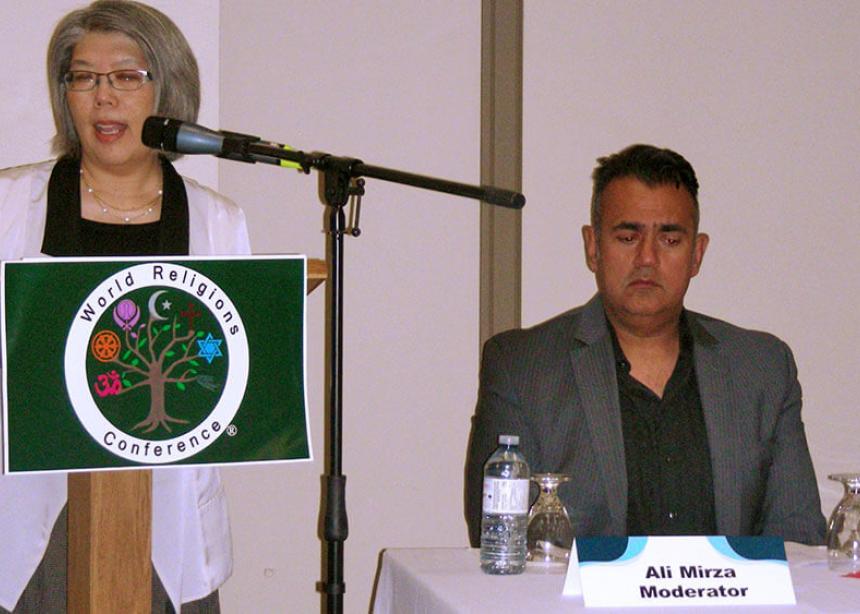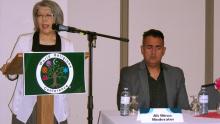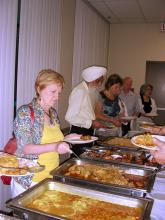An interfaith symposium on July 6 at Abbotsford’s Garden Park Tower found Christians, Muslims, Hindus and Sikhs reflecting on fasting and peace and then eating together with a meal around formally set tables.
“Fasting: An Aid to World Peace” was organized by Rizwan Peerzada, president of the local Ahmadiyya Muslim Jama (AMJ), who wanted to promote community and a sharing of experiences among people of different faiths in the Abbotsford community. With the practice of fasting and an interest in peace common to several of the world’s religions, Peerzada felt people of those faiths should explore some kind of relationship.
“We are delighted to welcome you,” said Mohammad Aslam Shad, AMJ Canada regional president. “We affirm the value of interfaith interaction where we can create an environment of brotherhood and peace.”
April Yamasaki, pastor of Emmanuel Mennonite Church, had been invited to speak on behalf of Christianity. “Jesus is the centre of our faith. We believe in fasting we are not earning God’s favour but are opening ourselves,” Yamasaki said. She read the account from Matthew 4 about Jesus fasting in the wilderness to clarify the purpose of his own ministry.
Yamasaki said fasting can be not only abstaining from food but can include fasting from other types of distractions as well, explaining, “Fasting is an aid to peace with God; it makes room for God in our lives.”
Hindu representatives Premaya Chaitanya said that fasting can be for philosophical, spiritual and physical reasons and for “our whole body, soul and mind. If everyone fasted for one day, it would affect the planet,” he said. “Our mother planet is very important to us. A nine-day fast is a selfless service to the planet.”
Fasting is particularly meaningful to Muslims during the month of Ramadan, this year between June 18 and July 17. Speaking on behalf of Islam, Maulana Balal Khokar said that currently he was feeling hungry and thirsty every day, but that it was helping him to learn to be kind, to live a simple life, and not to be boastful and proud. “How does it relate to other people? I can see how it feels to be hungry. As Muslims, when we fast, we try to feel the pain of others.”
Following the speaker presentations, more than 100 people participated in silent prayer, then enjoyed a buffet dinner together, courtesy of the hosting Muslim group. In keeping with the tradition of fasting until after sunset during Ramadan, the meal was not served until 9:15 p.m.
Reflecting on the experience later, Yamasaki wrote on her blog (“April Yamasaki: Writing and Other Acts of Faith”), “While it was an honour to speak on the topic of fasting and peace, for me the overall tone of the evening and the informal interactions were even more significant.”




Comments
Thank you for highlighting this interfaith event. It was a privilege to be involved. To complete the thought of my quote: "In fasting, we are not earning God’s favour, but we open ourselves to God’s continued presence, guidance, and teaching in our lives." For more on my remarks, please see http://aprilyamasaki.com/2015/07/13/in-the-christian-faith-how-is-fastin... .
Add new comment
Canadian Mennonite invites comments and encourages constructive discussion about our content. Actual full names (first and last) are required. Comments are moderated and may be edited. They will not appear online until approved and will be posted during business hours. Some comments may be reproduced in print.